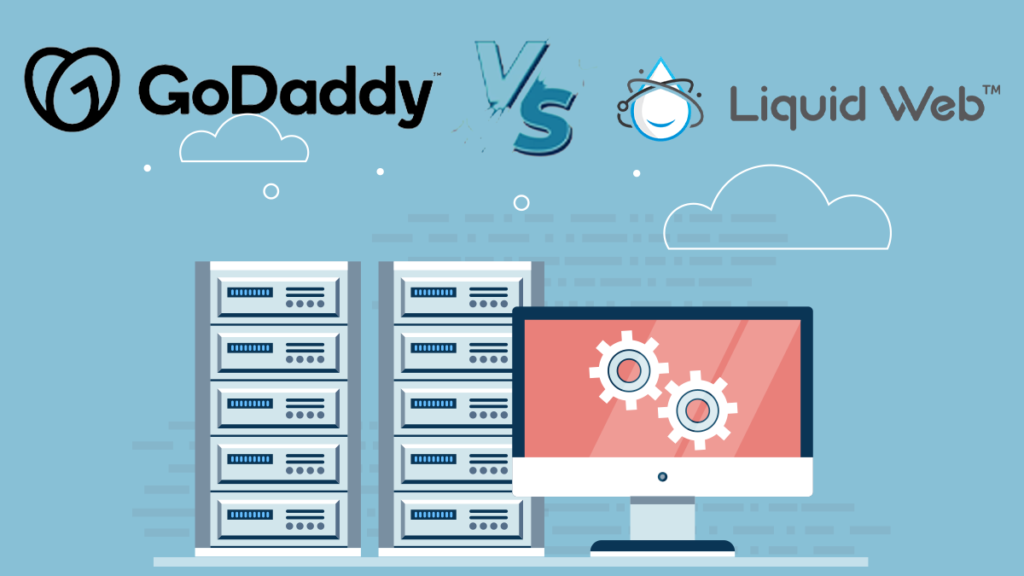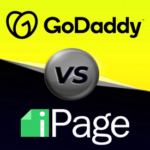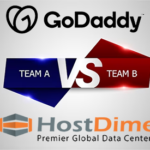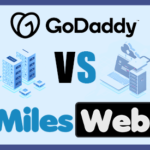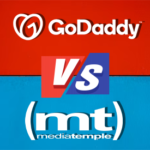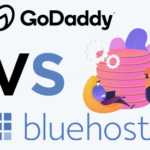Explore our comparison of GoDaddy vs Liquid Web and find the crucial factors, including scripting languages. Additionally, our exclusive algorithm gathers and evaluates vital product features and social media feedback related to the hosting services.
This enables us to compute both providers’ overall score and user rating. The findings indicate that GoDaddy earns a score of 8.8 compared to Liquid Web’s 9.0. However, GoDaddy boasts a customer satisfaction rating of 90%, while Liquid Web boasts an impressive 97%.
Today, we’re pitting two powerhouse providers against each other: Liquid Web vs GoDaddy. Depending on your requirements, you might lean towards a provider offering lightning-fast dedicated servers or opt for an economical shared plan with a complimentary website builder.
Each host stands out in its domain: Liquid Web for its VPS dedicated hosting and GoDaddy for its shared and WordPress plans. Before making your decision, peruse our comparison to weigh the strengths and weaknesses of each host.
Features
Key Features of GoDaddy
GoDaddy’s fundamental plans—shared, shared plus, VPS, dedicated, and WordPress—need more bandwidth to cater to your data demand. You can choose from a combination of HDD and SSD storage, with dedicated plans offering up to 16 TB of HDD and 2 TB of SSD.
For enhanced security, GoDaddy provides complimentary daily backups and data restoration and a constant SSL certificate for added protection. Installing popular applications like WordPress is a breeze, just a single click away. GoDaddy also provides a user-friendly drag-and-drop website builder for seamlessly creating your website’s front end.
Key Features of Liquid Web
Liquid Web offers managed WordPress, VPS, cloud, and dedicated hosting plans, with their VPS plans tailored for both Linux and Windows. The basic managed WordPress plans include up to 800 GB of storage as well as 10 TB of bandwidth.
Liquid Web prides itself on high-performance SSD storage, complimentary daily backups and restoration, and seamless integration with WordPress. Additionally, every site you order on the platform comes with a free SSL, as well as free migration and access to the Beaver Site Builder for starting your website from scratch.
Pricing
GoDaddy Pricing Options
GoDaddy presents a diverse range of hosting plans, each tailored to specific needs:
- Shared Hosting ($5.99 / month) – Ideal for small or new websites with minimal page count, utilizing shared server resources.
- VPS Hosting ($4.99 / month) – Offers expanded shared hosting plans, creating pseudo-dedicated environments on the same server.
- WordPress Hosting ($8.99 / month) – Specifically designed to maximize value for businesses operating WordPress websites.
- Dedicated Hosting (SSD – $139.99 / month) – Provides fully dedicated server resources, catering to large websites and high-security businesses.
Liquid Web Pricing Choices
In contrast, Liquid Web does not provide shared or cloud hosting options. Their offered plans and their target audiences are as follows:
- Managed WordPress Plans ($13.30/month) – Liquid Web’s foundational and cost-effective plans are centered around WordPress websites.
- VPS Hosting (2 GB RAM – $25/month) – Offers virtual private servers (VPS) on the same physical server, delivering cost-effective yet scalable resources.
- Cloud Hosting (Intel Xeon E3-1230 v6 – $149/month) – Provides expanded, pay-as-you-go resources for scalability.
- Dedicated Servers (Intel Xeon 1230V6 – $149.25/month) – Grants complete control over your server and robust protection against mass attacks.
Security
Security Features by GoDaddy
Upon subscribing to a web hosting plan with GoDaddy, you benefit from fundamental security measures for your website. This encompassing security package includes a complimentary SSL certificate, DDoS protection, and the added layer of CloudFlare security.
GoDaddy also ensures the safety of your website by providing daily backups on all plans, safeguarding against potential data loss. Their in-house firewall acts as a protective shield, while regular malware scans detect and address viruses before they can inflict harm.
While GoDaddy doesn’t offer Site Lock security, they offer specialized security plans that include scheduled cleanups, repairs, and unlimited site cleanups for an added layer of protection.
Security Features by Liquid Web
Liquid Web also places a strong emphasis on security in its hosting plans. Upon signing up for this platform, you receive a complimentary SSL certificate, DDoS protection, and the protective cloak of Cloudflare security. Additionally, your website data is backed up and readily restored in case of data loss, all as part of the basic hosting plans.
Liquid Web extends further security enhancements for those opting for more advanced plans. This includes access to a web application firewall, routine malware scans, comprehensive data protection measures, and the availability of VPNs to bolster your website’s defenses.
Final Thoughts
GoDaddy provides an extensive array of web hosting plans, catering to both fledgling startups and well-established businesses. Their pricing options are flexible, accommodating various budgets.
Moreover, GoDaddy’s basic plans offer bandwidth and storage space, surpassing many competitors. With a broader server network and enhanced security features, GoDaddy prioritizes the safety of your website.
However, Liquid Web has its strengths. Notably, it boasts swift customer support and superior web performance. Their uptime is consistently reliable, and their user interface stands out. Nevertheless, GoDaddy vs Liquid Web is superior across most aspects, solidifying its position as the preferred choice.


